Abstract
Junior colleagues or PhD students submitting their first manuscript often ask: “How long will it take before the editor comes back to me with a decision?” My stock answer is: “It depends!” It depends on the nature of the journal, the support available to the editor, how busy the editor is, or how difficult she finds it to allocate your paper to appropriate reviewers. Moreover, once sent out for review it depends how busy the reviewers are. I often have to remind my colleagues and student that academics are hardly ever paid for being a reviewer, and hence they do their reviewing over and above a usually heavy academic teaching and research load.
This short article highlights the case of one of our research papers which took four years from the day of submission to the journal to finally appearing in print. And, I hasten to say, it was not because the initially submitted manuscript was so bad that the authors had to make major changes and re-write or re-structure the whole paper. This blog highlights some of the unexpected hiccups in the process of getting an article published.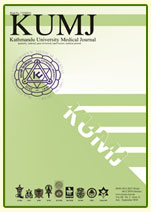
Introduction
On October the 5th 2016 Samridhi Pradhan, who worked for Green Tara Nepal in Kathmandu and who was Bournemouth University Visiting faculty at the time, emailed the then editor of an English-language journal based in Nepal with our manuscript. She wrote: “Respected Editor, I wish to submit a new manuscript entitled “Factors affecting the uptake of institutional delivery, antenatal and postnatal care services” in Nawalparasi district, Nepal in your esteemed Kathmandu University Medical Journal (KUMJ).” The editor wrote back the same day thanking us for our submission, and presenting us with a “manuscript ID o20161006250 for your valuable paper.…We will very soon go for initial screening and let you notify.” We expected the editor to send this manuscript out for review, then for us to get feedback a few months later, make some (minor) changes and have the paper published in 2017.
Then nothing happened for a year although we emailed and phoned the editor of KUMJ regularly. There seems to be a problem finding reviewers, and we offered to other potential reviewers. In December one of our co-authors Dr. Sharada Wasti informed our team that the KUMJ editor had suggested in a conversation with home that our paper would appear in the December volume of the journal. Dr. Waste emailed on 15 December 2017: “I will follow up and keep update with you by the end of this month.” KUMJ duly published Vol. 15 (4) labelled Oct.-Dec. 2017 but our paper was not included.
Four days later on December 19th 2017 we received an email for the editor with a set of minor comments and questions about the manuscript for reviewers. We made the requested amendments and resubmitted our paper on January 10th 2018. Months passed and KUMJ published two more issues in 2018 without our paper despite our team sending reminders regularly. Then on the last day of July 2018 Dr. Wasti emailed our team that he had had contact with the editor who had made it clear that: “This paper has been accepted” and it was supposed to come published in the last volume, which would have been the April-June 2018 issue Vol.16 (2). Dr. Wasti added that the editor had made it clear that although it was not covered, KUMJ “will publish in our upcoming volume.” This next issue Vol. 16 (3) again failed to publish our paper.
Then there was a long gap with KUMJ changing editors, correspondence being mislaid and manuscripts getting lost. Due to Dr. Wasti’s persistence in contacting the editors we received a request to update our paper with 2019 data in December 2019, nearly a year and a half after re-submission. A few days later that month we were informed that the journal was finally going to publish our paper. Another wo months passed before the editor email that say: “Congratulation, your paper has been finalized and selected for coming issue of KUMJ, paper has been uploaded in our website www.kumj.com.np.”
Some papers take longer to get published than others!
Our paper is now online first 3½ years after the initial submission. And to add insult to injury the journal is backdating the paper to appear with a publication date of September 2019, so it will be published in Vol.17(3) labelled July-Sept. 2019. This is, of course, an unusual story with a very long gap between first submission of a manuscript and the final appearance of the paper in print. It is unusual because the paper was only ever submitted to one journal. It is more likely that the publish process takes time because the first journal rejects the paper, the second paper also rejects your paper and then the subsequent paper asks for a set of alterations and changes. For example, van Teijlingen and Hundley (2002) outlined such process for one of their papers which took two years from initial submission to publication. However, this paper was submitted to five different journals in succession after having between rejected by the first four.
References:
- Pradhan, S., van Teijlingen E., Simkhada, P.P., Dhungel, A., Silwal R.C., Fanning P., Wasti, S.P. (2019) Factors Affecting the Uptake of Institutional Delivery, Antenatal and Postnatal Care in Nawalparasi District, Nepal, Kathmandu University Medical Journal http://www.kumj.com.np/issue/X/49-54.pdf (accepted).
- van Teijlingen, E., Hundley, V. (2002) Getting your paper to the right journal: a case study of an academic paper, Journal of Advanced Nursing 37(6): 506-511.
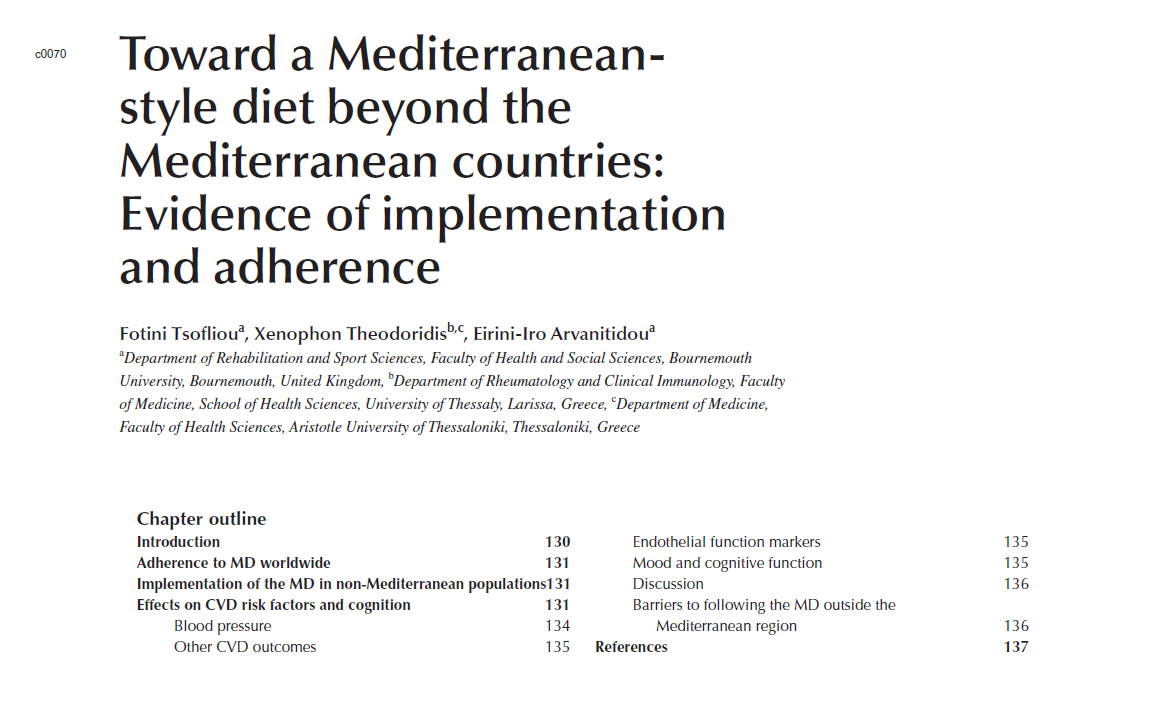
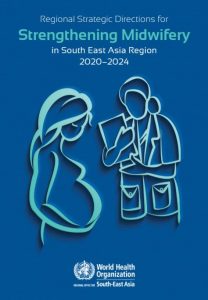
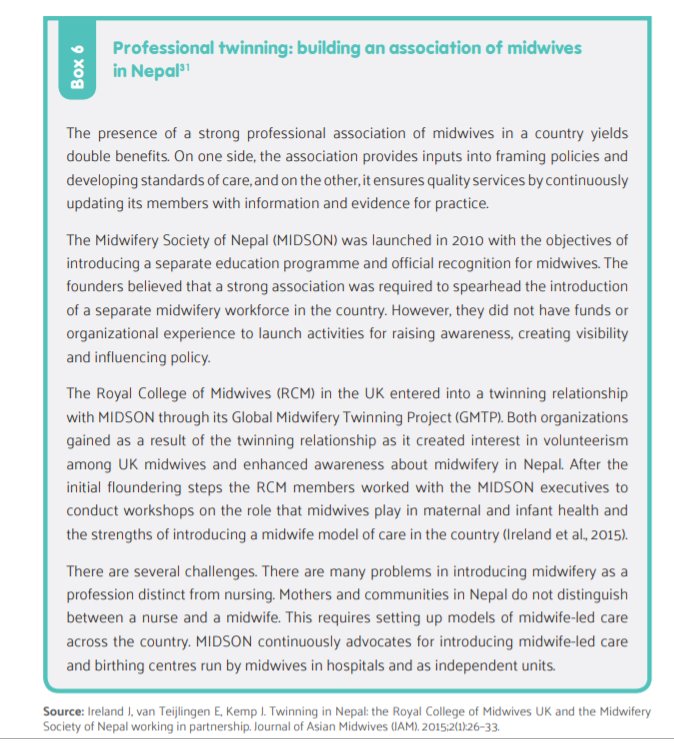
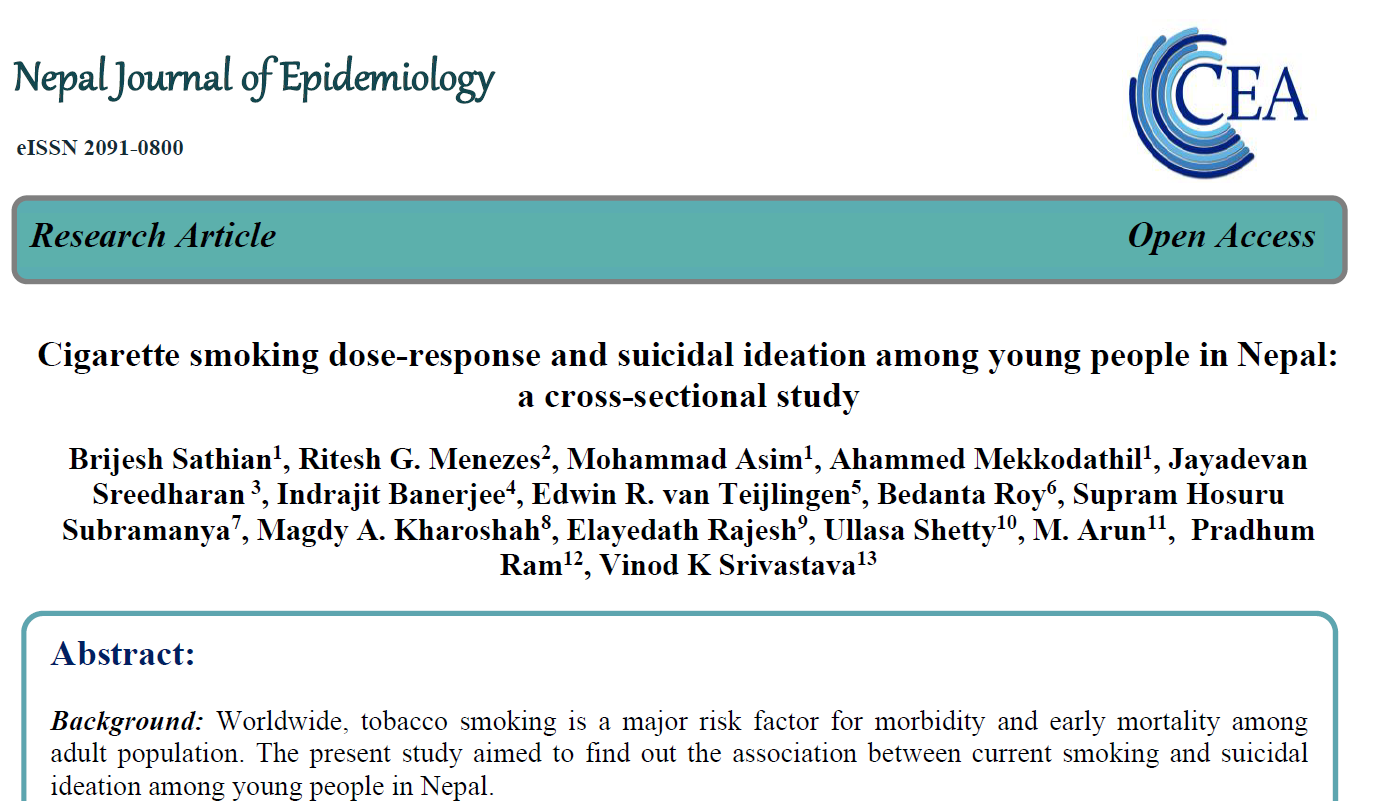


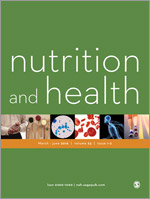

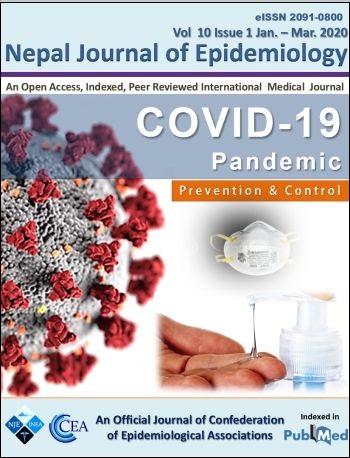



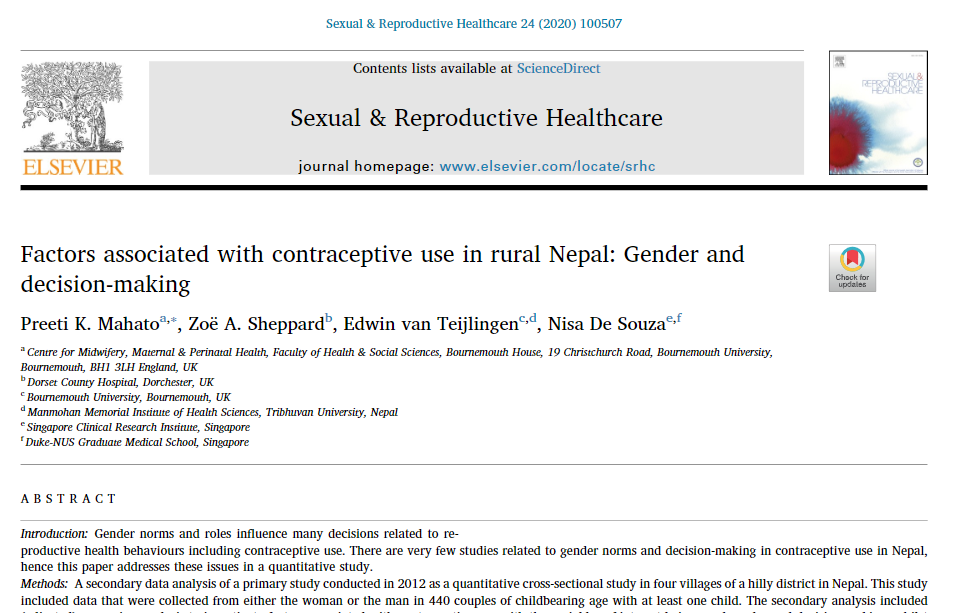


 funding to support 10 UK Psychology Students and Staff to visit India. This initiative receives further support from Global Engagement Hub, Bournemouth University.
funding to support 10 UK Psychology Students and Staff to visit India. This initiative receives further support from Global Engagement Hub, Bournemouth University.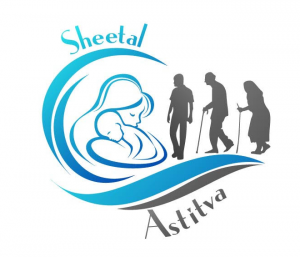













 Seeing the fruits of your labour in Bangladesh
Seeing the fruits of your labour in Bangladesh Exploring Embodied Research: Body Map Storytelling Workshop & Research Seminar
Exploring Embodied Research: Body Map Storytelling Workshop & Research Seminar Marking a Milestone: The Swash Channel Wreck Book Launch
Marking a Milestone: The Swash Channel Wreck Book Launch No access to BRIAN 5-6th February
No access to BRIAN 5-6th February ECR Funding Open Call: Research Culture & Community Grant – Application Deadline Friday 12 December
ECR Funding Open Call: Research Culture & Community Grant – Application Deadline Friday 12 December MSCA Postdoctoral Fellowships 2025 Call
MSCA Postdoctoral Fellowships 2025 Call ERC Advanced Grant 2025 Webinar
ERC Advanced Grant 2025 Webinar Update on UKRO services
Update on UKRO services European research project exploring use of ‘virtual twins’ to better manage metabolic associated fatty liver disease
European research project exploring use of ‘virtual twins’ to better manage metabolic associated fatty liver disease